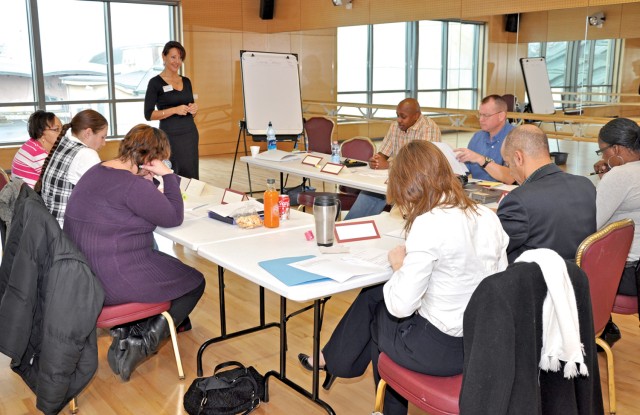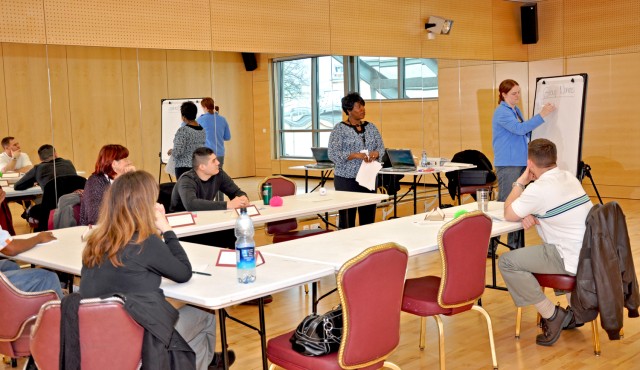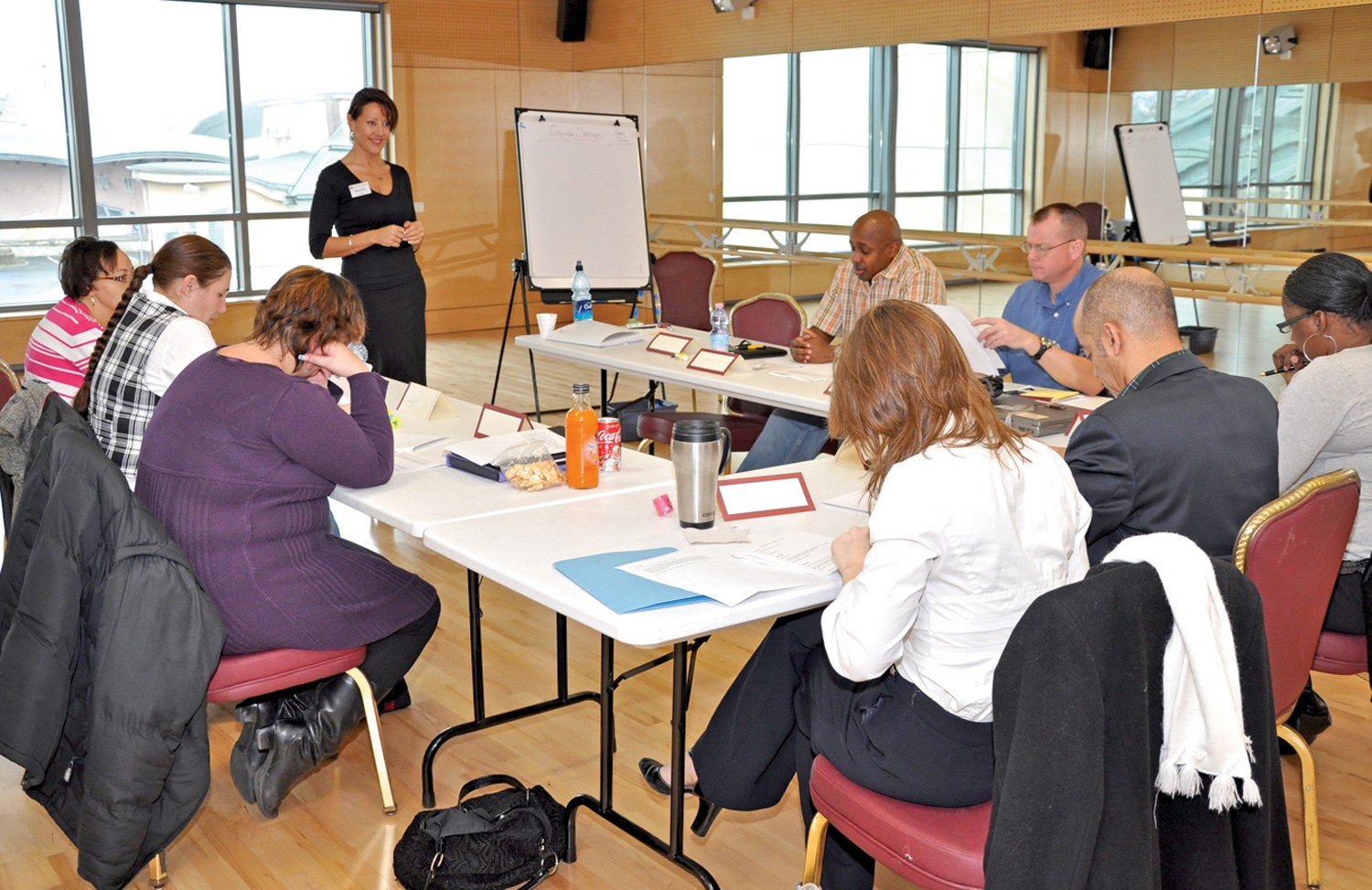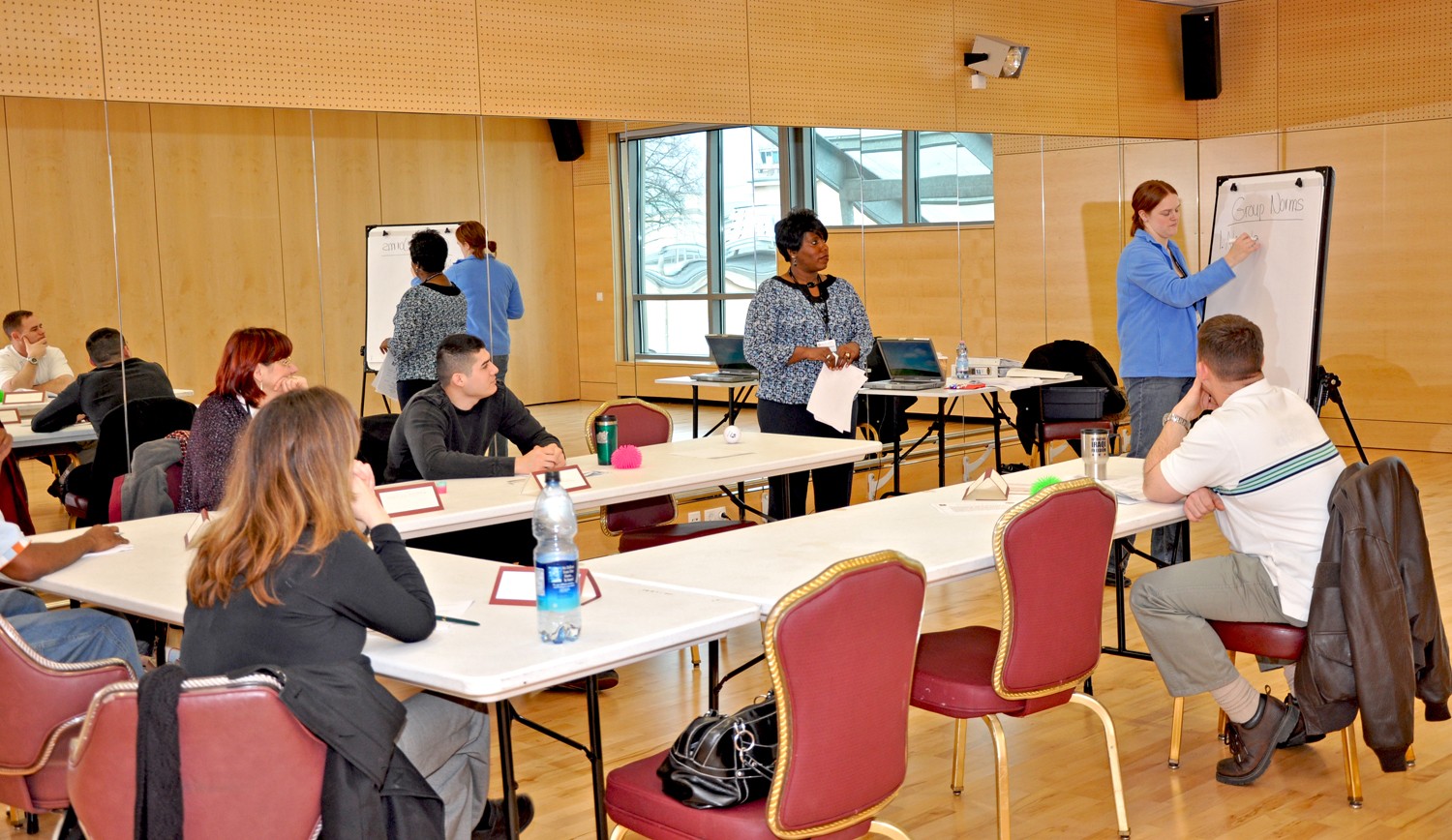The 2010 Army Family Action Plan Conference got under way February 24-26 at the Wiesbaden Fitness Center where members of the U.S. Army Garrison Wiesbaden community gathered to sort through issues that ranged from housing to Space-Available Travel to establishing identity theft protection measures.
To get things changed, this is where we do it, through this forum," said USAG Wiesbaden Commander Col. Jeffrey Dill as he welcomed attendees to the symposium.
Delegates - Soldiers, spouses and teens - were divided into focus groups to sort, align and prioritize the 70 issues submitted for this year's conference.
Because the conference's outcome could potentially extend beyond the 2,800 service members and 7,400 family members in the Wiesbaden community to impact other Army communities, officials continually reemphasize the importance of the 3-day event.
"It baffles me how so many people don't know or take advantage of the AFAP conference," said Annikka Trabucco, AFAP manager, reiterating that the annual convention is a place where garrison leaders and decision makers give focused attention to the concern of the community to continually improve the quality of life.
The Force Support Work Group tackled subjects like housing, schools, Family Readiness Groups and family issues.
The Family Support and Consumer Services Work Group, facilitated by Maria Diaz, sorted through other family-oriented information where the No. 1 issue tended to revolve around Space-Available Travel - how it worked, who can travel and if arrangements can be made for survivors. Other topics of discussion included AAFES, a dog park, housing playgrounds and identity theft.
Having subject matter experts on hand to answer questions and provide additional information such as regulations and policies was also a key part in bringing resolution to many concerns and aiding the delegates in submitting informed recommendations.
"I've seen issues resolved on the spot," said Trabucco referencing an issue regarding the community's shuttle bus schedule.
"They are extremely important," said John Howe, Directorate of Public Works chief of operations and maintenance, who attended to address apprehensions regarding playground repairs that were more than $10 million in cost, stating that the forum gives attention to issues that are otherwise overlooked.
The AFAP conference closed with an out brief where each group presented its top five issues to the garrison commander.
Issue recommendations
Aca,!Ac The Teen Work Group presented two issue recommendations: to build a multi-purpose facility in Hainerberg that is accessible by foot from the housing area and to provide non-military ID cards to be used on the economy.
Aca,!Ac The Family Support and Consumer Work Group recommended that DoD 4515.13-R be amended to allow surviving dependants to use Space-Available Travel; that a comprehensive identity theft and recovery education program be established; and that a fenced-in area be built for a dog exercise park in military family housing areas.
Aca,!Ac The Force Support Work Group recommended that a full-time casualty assistance position be created at battalion levels incorporating a quality-control mechanism implementing extensive training, testing and evaluation to ensure readiness to support survivors; that several modifications be made to support a request for adequate parking at the Aumann Strasse Child Development Center; and that a government DoD funding program be established to support all U.S. forces annual balls, in order to eliminate fundraising.
Aca,!Ac The Single Soldier Work Group recommended that a driving education and licensing program be amended to accommodate special situation first-term Soldiers established with the authority to issue licenses recognized as valid permits by other states of the union; and that appliances in the barracks be bolstered to ensure that adequate support is available to residents.
Aca,!Ac The Entitlements and Benefits Work Group recommended that a system be installed to allow ID cardholders access to the track located at the high school; that video cameras and adult bus monitors be employed to ensure student safety on school buses; and that timely and accurate housing information about housing policies, waiting lists and housing lists be made accessible to Army families.
Additional attention will be given to a garrison steering committee to determine resolution or if there is a need to elevate concerns to levels higher than the local command.
To get more information about the AFAP process, contact Annikka Trabucco at mil 335-5234 or civ (0611) 4080-234.




Social Sharing